Long-term followers of the SAFETY Erasmus+ project, but also of any simulation based educatioon channel, will ost probably have heard of the educational and research challenges specific to this field. But have you also heard of the political challenges?
While it is common consensus that students must be educated, the “how” is not so much consensual. Education tends to be a very conservative field, where changes are slow and much debated. Simulation based education has a reputation of being expensive, somehow “elite” and not suitable for masses of learners, and very ressource-intensive in terms of space, personell and material. While some of these claims might have a base in reality, it is only a more global outlook onto education that help put these into the correct perspective. And herein lies a weak spot of simulation based education – the global point of view, or lack thereof. Most of the time, simulation has been advocated among those already convinced, using enthusiasm as a major ressource and postponing economic, workforce and other organisational considerations for later.While this approach is useful in a new and rapidly growing field, simulation based education has reached a certain ripeness and should proceed this stage.
And this is where an initiative comes into play – the Global Network for Simulationo in Healthcare, or GNSH in short. While there are plenty of scientific societies releated to simulation based education out there, this initiative is not a society, it’s more like a think-tank, uniting societies, academia and industry in one forum. The best description has been given in the 2012 London Concordat [1]:
“A global network of organizations, committed to enhancing patient safety, healthcare quality, research and education, by promoting the appropriate use of simulation through collaboration, advocacy and support”
This very short statement captures a spirit that will be necessary in order to advance the field of simulation beyonf the current state, establishing and consolidating its role in healthcare education.
In the same spirit one could look at the findings of the 2023 SSH Research Summit, held as a preconference event to the IMSH 2023 conference. The main theme of this event was that research on and with simulation needs to look at a broader picture in order to integrate experiences from other industries, paint a broader picture and take into consideration all aspects of simulation. Citing the published findings [2]:
“The impact of simulation, whether direct or indirect, needs to be assessed across different levels of training, and larger, more complex contexts need to be taken into account. […] The scope of simulation-related research can be widened from having simulation as the focus of research (research about simulation), to using simulation to investigate other research questions (research with simulation). Simulation-related research can benefit from an improved understanding of structural differences and similarities with other domains.”
Following the COVID-19 pandemic, with its boost in distance and virtual education, a further broadening of the field could be observed, making the necessity for concerted activities even more stringent.
Overall the field of simulation based education in healthcare is at a crucial development point, where many individual and institutional efforts are being focussed and brought together, thus allowing the future development and establishment of simulation in healthcare education.
Written by Marc Lazarovici and the LMU team
Sources:
- https://www.gnsh.org/about/concordate/^
- Dieckmann P, Phero JC, Issenberg SB, Kardong-Edgren S, Ostergaard D, Ringsted C. The first Research Consensus Summit of the Society for Simulation in Healthcare: conduction and a synthesis of the results. Simul Healthc. 2011 Aug;6 Suppl:S1-9. doi: 10.1097/SIH.0b013e31822238fc. PMID: 21817856.



